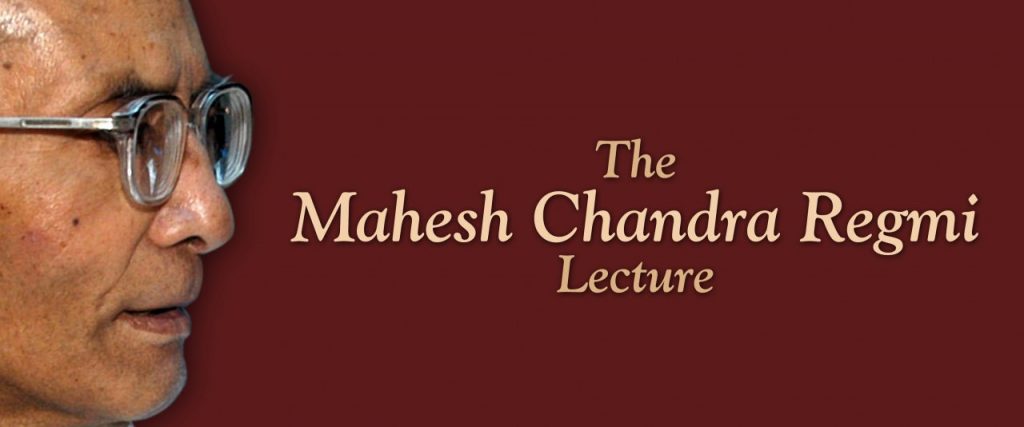Announcement
The Mahesh Chandra Regmi Lecture 2020 by Ranabir Samaddar | The Present Epidemiological Moment and Bio-Politics from Below

Social Science Baha
announces
The Mahesh Chandra Regmi Lecture 2020
Ranabir Samaddar
on
The Present Epidemiological Moment and
Bio-Politics from Below
7.15 pm (Nepal time)/1.30 pm (UTC) | 7 December 2020 (Monday) | via Zoom
War revises the international order. Colonial wars changed political orders in many parts of the world, set up new borders and boundaries, and created divisions in the world. But we rarely notice to what extent pestilence and massive outbreaks of disease also change the global order. Today, in the context of the Covid-19 pandemic, the world is witnessing a neo-Malthusian scenario in many countries. What will be the response to this resurgence of neo-Malthusianism in global politics?
In this lecture, I shall try to present a rough vision of a new politics of life and the importance of care in a transformed politics. I also suggest that this calls for a new type of public power which values care as the guiding principle of organising society and which will be treated as a commons. We have to consider the questions: What kind of power will guard the society that emerges as the commons? What kind of power will nourish the world of care, which would mean protection and a consequent norm of responsibility – precisely the principles which have been central to the care of the self and manipulated by modern bourgeois democracies? What will be the new policies and new modes to reinforce and widen the social bases of care and protection?
The more we think of these questions the more we shall see that these are issues of how to imagine self-rule in a different way, which will learn from the histories of fighting diseases and wars in the past and yet will be infused with an order of a new imaginary of a state that runs things differently, assures protection to its people, discharges responsibility for the safety, security, and well-being of its people – in short, a new combination of autonomy, history, and politics. The response to the epidemic is not, unlike what the media reports, even. The poor and the migrant labourer, the aged and the vulnerable, the assembly line worker in a plant that produces ventilators and the mechanics in a small shop producing test kits, or the vigilant guards of a village and an urban slum – all are playing roles in this war. The closer a government pays attention to how people respond to this danger and mobilise its resources, the less costly will this war be. Trust will be an important element in protecting society as a common resource.
Although this is a crude sketch of a new type of general power that the post-epidemic scenario will call for, I think it provides a starting point to reconstruct and characterise what is specific about the present epidemiological moment. This is a moment that offers us as if in flashes a counter-history based on elements that the given history of crises and statehoods provides. This counter-history draws on contemporary accounts of what we may call ‘bio-politics from below’.
Ranabir Samaddar is currently the Distinguished Chair in Migration and Forced Migration Studies, Calcutta Research Group, Kolkata, India. He belongs to the critical school of thinking and is considered one of the foremost theorists in the field of migration and forced migration studies. His writings on migration, forms of labour, urbanisation, and political struggles have signalled a new turn in post-colonial thinking. Among his influential works is The Marginal Nation: Transborder Migration from Bangladesh to West Bengal (1999). His recent works are Karl Marx and the Postcolonial Age (2018), The Crisis of 1974: Railway Strike and the Rank and File (2016), and Beyond Kolkata: Rajarhat and the Dystopia of Urban Imagination (co-author) (2014).
This lecture will be delivered over Zoom. Those interested in attending are requested to register for the event by clicking here.
